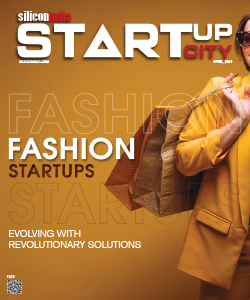Exploring the Trends in VLSI/ Semiconductor Space at Semicon and VLSI Startup Showcase 2014
 Bangalore: Semicon and VLSI Startup Showcase 2014 was held on 27 June, 2014 in Bangalore, jam packed with the entrepreneurs, wannapreneurs and investors in the VLSI/ Semiconductor space. The conference was jointly organized by SiliconIndia and Mentor Graphics and would like to thank all the speakers, delegates and all parties who made this event a grand success.
Bangalore: Semicon and VLSI Startup Showcase 2014 was held on 27 June, 2014 in Bangalore, jam packed with the entrepreneurs, wannapreneurs and investors in the VLSI/ Semiconductor space. The conference was jointly organized by SiliconIndia and Mentor Graphics and would like to thank all the speakers, delegates and all parties who made this event a grand success.
The event started with an interesting session on “Future of Internet of Things in Electronics and Semiconductor Space” by M N Vidyashankar, President, IESA.
While discussing on “Need for Fabless Companies from India” Ganapathy Subramaniam, Venture Partner, Walden International stressed the need of availability of Seed Capital for Semiconductor Startups in India. He also outlined that Korean Fabless companies benefitted by the presence of Samsung and LG and insisted that Govt of India should help Indian Fabless companies to encourage Indian Government needs such as Smart Cards, Energy meters and Tablets. He also stated that “we need to have 4-5 Fabless companies with more than $100 Million revenue in next 5 years so that we remain in race as country in Semiconductors and also ready to increase fab utilization when the foundry is ready.”
The session was followed by an exciting panel discussion on “VC Perspectives: Opportunities for Entrepreneurs in the Embedded Space. What Startups Need to do Right.” The speakers who were involved in this discussion are Karthee Madasamy, Vice President & Managing Director, Qualcomm Ventures India, Sanjay Swamy, Managing Partner, AngelPrime, Dr. Srikanth Sundararajan, Venture Partner, Helion Venture Partners, Veena Avadhanam, Head, Bangalore Angels and it was well moderated by Samir Kumar, Managing Director, Inventus (India) Advisors.
During the discussion, Dr. Srikanth Sundararajan, Venture Partner, Helion Venture Partners said, “The IoT wave across m2m plays (infra (smart homes/buildings, cities), healthcare, retail, manufacturing) or m2p, p2p plays, and wearables/fashionables will see a lot of advances in the area of low power devices/wireless network level innovation. And Innovation can happen at the edge device level (transmitting devices), hub devices (accumulating data), and the cloud (managing/analytics).” He also added that India itself is an end consumer market for such players, and given that hardware (sensors, MCU's, leverage of wireless standards like DASH7/others that are lower power/longer range) there will be the potential for providing differentiated solutions for the above mentioned verticals.”
 Ineda is pioneering a new wearable processor architecture called Hierarchical Computing which is a tiered multi-CPU architecture with shared peripherals and memory that allows multiple CPU cores to run independently and together create the industry's best power profile without compromising performance, said Balaji Kanigicherla, Founder, CTO and VP Engineering of Ineda Systems while discussing on "Ineda Systems: My Entrepreneurial Journey".
Ineda is pioneering a new wearable processor architecture called Hierarchical Computing which is a tiered multi-CPU architecture with shared peripherals and memory that allows multiple CPU cores to run independently and together create the industry's best power profile without compromising performance, said Balaji Kanigicherla, Founder, CTO and VP Engineering of Ineda Systems while discussing on "Ineda Systems: My Entrepreneurial Journey".
While discussing on "Empowering Startups for the Big Leap" Raghu Panicker, Country Director, Mentor Graphics said that "We have been working closely with startups for the last two decades and our experience has been like a catalyst in their growth. We try and facilitate the key collaboration impact zones like expertise, information, interaction, enablers, connecting to markets and Technology funding. All these impact zones have helped us to work with different startups both in India & at a global level. We would like to nurture more startups going forward as it’s a key ingredient for our business success." He also added that Mentor Graphics Entrepreneurial business model helps all startups and emerging companies to take advantage of our technical seeding from the initial stage itself. So we see a great potential in this segment and we are sure to play a key role in success of lot of startups from India.
Ravishankar G, Co-founder & Senior Vice-President, Ittiam Systems during the discussion on “Semiconductor Entrepreneurship: Opportunities & Challenges” said that one of the key ingredients for the startup to be successful is have a good team rather than just one person as the founding team that trusts each other. Also added target a few potential customers and keep them engaged from the beginning. This will help to keep refining the specifications of the product and also make the design-win successful. And go after a market that is big and also growing.
The conference was concluded with a Closing Keynote on "Understanding the Electronics and Semiconductor Opportunity Space, and making the Right Choices" by PVG Menon, President & CEO, VANN Consulting. PVG Menon said "for the indigenous fabless semiconductor product industry to develop in India, we must build up a strong domestic electronics systems industry which can both consume the chips from the domestic fabless companies, as well as define requirements for them to work on."


.jpg)
